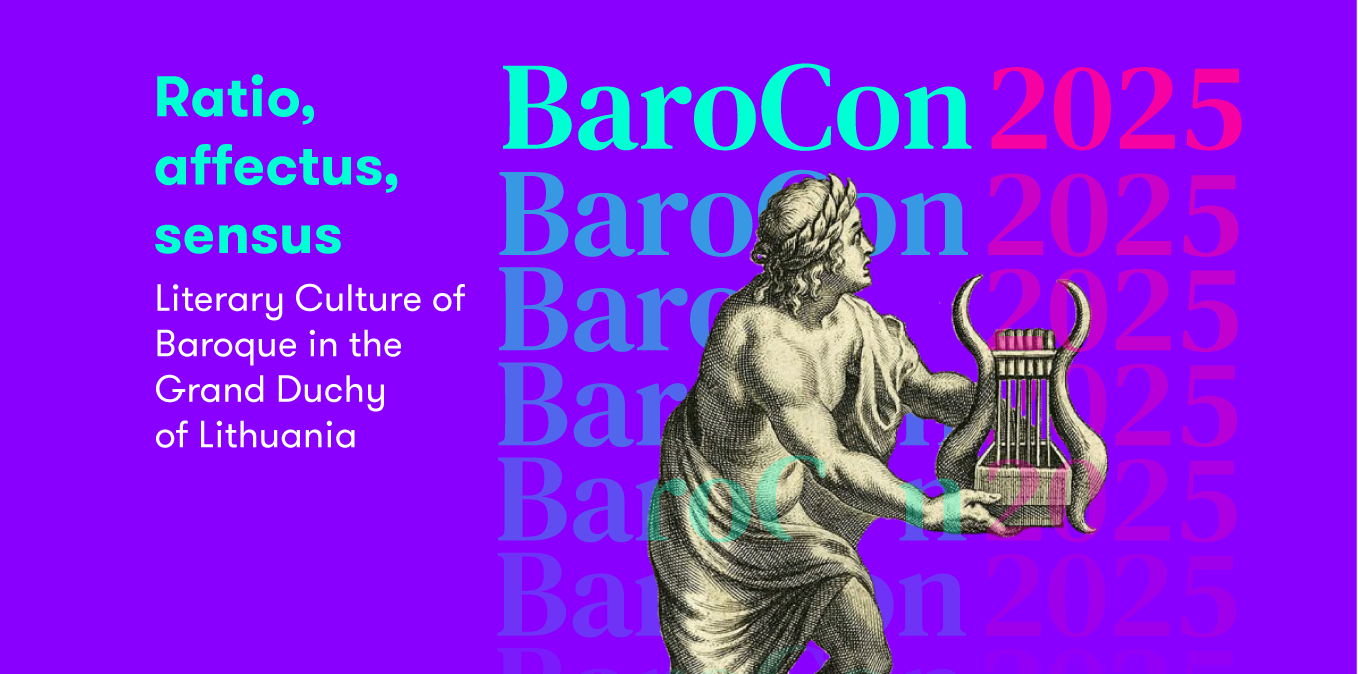Ratio, affectus, sensus: Literary Culture of the Baroque in the Grand Duchy of Lithuania
In 2025, we will commemorate the 400th anniversary of the first publication of Matheus Casimirus Sarbievius' most famous Latin poetry collection 'Lyricorum libri tres' (1625). This has led to 2025 being declared the Year of Baroque Literature in Lithuania. The eminent Jesuit neo-Latin poet of the Polish-Lithuanian Commonwealth, Sarbievius, has been hailed as the Christian Horace and the Sarmatian Horace. His theoretical thoughts on poetry and rhetoric are still highly regarded and have inspired new research on other concurrent themes and authors. This anniversary provides an opportunity to explore the extent and diversity of Baroque literary culture, which has seen a surge of interest in recent decades, both in the academic world and in popular culture. Therefore, the Institute of Lithuanian Literature and Folklore, together with the Faculty of Philology of Vilnius University, is organising an international academic conference "Ratio, affectus, sensus: Literary Culture of the Baroque in the Grand Duchy of Lithuania" on 25-27 September 2025 in the baroque city of Vilnius.
The aim of the multidisciplinary conference is to stimulate discussion on the literary culture of the "long seventeenth century" (from the end of the 16th century to the middle of the 18th century) in the Grand Duchy of Lithuania. This historical period, associated with dramatic changes and a general cultural crisis, is often described in contradictory terms and in constant tension between reason and senses, rigid structure and passions, classifications and impressions, etc. By embracing this contradiction, we invite an exploration of the theme in question through the lens of this dynamic interplay between reason (ratio), emotion (affectus) and the senses (sensus), which can be perceived in various genres of the period, such as poetry, biography, hagiography, rhetoric, private and public correspondence, and so on. The importance of the modern approach lies not only in what it can reveal about the Baroque in the Grand Duchy of Lithuania, but also about subsequent and contemporary literary culture, as scholars have demonstrated the continuing influence of a 'Baroque spirit'.
Event location
25–26 September the conference will take place at V. Krėvė (118) auditorium, Faculty of Philology
27 September the conference will take place at the Church Heritage Museum, Šv. Mykolo g. 9 (entrance from Maironio g. "Arkangelo konferencijų centras")
Keynote speakers

Ona Dilytė-Čiurinskienė
Senior Researcher, The Institute of Lithuanian Literature and Folklore
Prof Stephen Harrison
Professor of Latin literature, University of Oxford
Tomas Riklius
Sarbiewski’s Theoretical Intersections with the Post-Tridentine Intellectual Sphere
Tomas Riklius
Vilnius University
Sarbiewski’s Theoretical Intersections with the Post-Tridentine Intellectual Sphere
Keywords: Sarbiewski, discors concordia, literary theory, aesthetic categories, post-Tridentine art theory
In the theoretical work 'De acuto et arguto', written in the first half of the 17th century, Maciej Kazimierz Sarbiewski succinctly describes the poetic and literary principles of the Baroque as 'discors concordia'. For Sarbiewski, it was a rational result of the juxtaposition of unlikely conjunctions, i.e. acutum ('sharpness') and argutum ('wit'), and the merging of classical concepts with the Renaissance worldview. It seems evident that these concepts share the same spirit and intellectual premises as the post-Tridentine categories of aesthetic evaluation intended for sacred painting. In this paper I explore the theoretical background of Sarbiewski's theory, revealing its intellectual connections with the aesthetic categories of sacredness, historicity, verisimilitude, and modesty articulated in the art theory treatises of concurrent Catholic scholars such as Giovanni Andrea Gilio, Federico Borromeo, Antonio Possevino, and Gabriele Paleotti.


